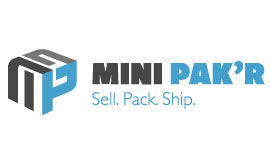Pros and Cons of Marketplace Platforms
So you’re a retailer. Where should you sell? In an established online marketplace, or in a store of your own? You can find an overview of all the various types of retail avenues here, but today we want to provide you with the pros and cons of all your options, so you can make the best choice for yourself and your business!
Online Store
PROS:
- Ownership: If you own the store, you also own the traffic. This opens up new opportunities for monetization and marketing. It also helps you develop brand equity and resellability.
- Data collection: Owning your store makes it possible to collect detailed customer data. You can collect email addresses, track website visitors, and learn much more about your customers. With this information, you can create a better experience more tailored to your customers!
- Control: Your store, your rules.
- Branding: With an independent store, you can build your own customer experience aligned to your own values.
- Marketing: Owning your store makes marketing easier because you can direct visitors to dedicated landing pages and create custom offers.
- Customer expectations: Customers have come to expect an online presence from stores they shop.They might look for your online store for additional products or discounts.
Challenges
- Startup costs: Setting up an online store does require some initial investment, mostly for a domain and e-commerce software.
- Learning curve: The more control you have over the store, the steeper this learning curve. Therefore existing marketplaces, like Amazon or Etsy, are easier for beginners to start selling on.
- Attracting customers: With your own store, you’re also responsible for all marketing.
- Technical issues: If you’re using self-hosted e-commerce software, you’re also responsible for keeping it updated. Fear not, though: hosted e-commerce solutions exist to mitigate this responsibility (and added stress).
- Legal issues: You’ll need to be aware of your country’s privacy and data collection laws, and it’s your responsibility to ensure compliance.
- Shipping: Some marketplaces offer shipping services to their merchants (such as Amazon FBA, which we covered here!). With your own store, however, you’re responsible for shipping the product to the customer.
Online Marketplaces
You’re already familiar with online marketplaces, both big name like Amazon and smaller, boutique experiences like Etsy. But what about their pros and cons?
Advantages
- Low startup costs: Besides the inventory itself, the cost to sell on a marketplace are low (though it varies from marketplace to marketplace). Anyone can get started as long as they have something to sell.
- Built-in audience: Established marketplaces already have buyers; no need to track down traffic yourself!
- Trust: Because of name recognition, customers are likely to trust bigger, more established marketplaces over independent online stores.
- SEO-friendliness: Often, online marketplaces have existing search engines in their site structure, making your product easy to find - and easy to buy.
- Ease of use: Online marketplaces are much more plug-and-play than alternatives. All you need is a product to sell; they’ll take care of the rest!
Challenges
- Competition: The low barrier to entry and large existing audience means that the competition on marketplaces can be pretty intense.
- Fees: Marketplaces will take a cut of the selling price as their fees, and most also charge an upfront listing fee. Consider your profit margins when opting to sell in a marketplace.
- No ownership: Any traffic you build to your marketplace store is owned and controlled by the marketplace itself. (Consider the flipside: when you leave the marketplace, the audience and any brand loyalty you might have built up disappears)
- Limitations: The marketplace determines everything from the kind of products you can sell to the kind of data you can collect. This often limits your marketing capabilities and customer understanding.
Social Commerce
This one is simple: instead of running a fully fledged store, you sell to customers on social media. You’ve probably seen friends on Facebook or Instagram trying to sign you up for Beachbody products or Lularoe leggings.
Advantages
- Targeting: You can use the enormous amount of data that social networks already collect to create hyper-targeted campaigns and higher sales.
- Ease of use: On some networks, creating a social store is as easy as sharing high-quality pictures of your product alongside a link to where customers can buy.
- Discovery: Social networks, because of their visual nature, are great for helping customers discover your products. This works particularly well if your product is highly visual or needs to be demonstrated (think apparel, makeup, fashion accessories, etc.).
- Trust: Similar to a marketplace, running a store on a social network lends some of the trustworthiness of that network to your store.
Challenges
- Ownership: As with marketplaces, you don’t own any of the traffic or data you drive to your store.
- Changing rules: Social networks change their algorithms constantly - it can be very hard to keep up.
- Limitations: Rules vary by network, and some may impose limitations that impact your bottom line.
Offline Commerce
We talk a lot about e-commerce around here, but now we’re throwing it back to the classics. That’s right: good ol’ brick-and-mortar.
Advantages
- Customer experience: With a physical retail space, you have complete control over the customer experience from the moment they walk in the door.
- Access to customers: Most brick-and-mortar stores attract walk-in customers, especially if you’re in a good location.
- Brand vision: A store gives you the freedom to express your brand vision much more clearly than an online space through visuals, layout, music, and overall “vibe.” What you create is entirely up to you!
Challenges
- Cost, especially up-front: Between renting a physical space, interior decoration, and hiring retail workers, the initial investment to build an offline store can be enormous. Keep in mind you’ll also have to pay ongoing maintenance costs.
- Legal issues: You might require a number of permits and licenses from your local authorities to run a physical store - be sure to factor this in to the cost of doing business.
- Location: Physical stores depend heavily on location for their success. A location with poor accessibility or a lack of foot traffic can severely damage your bottom line.
Mobile apps
A mobile app is an extension of your online store - but in a smartphone-friendly format. Instead of logging into your website via a browser, customers can install your app and shop directly from their phones.
Advantages:
- Better user experience, or UX: A mobile app is designed for mobile devices. As such, it’ll be optimized to the platform it’s viewed on.
- Customer loyalty: Most mobile users are hesitant of installing a large number of apps - hello, data. If they choose to install yours, they’re less likely to use apps or websites from your competitors.
Challenges:
- User acquisition: The flipside of that customer loyalty coin. Mobile users are installing fewer and fewer app, choosing instead to use mobile websites. It can be a challenge to attract users to your app in the first place.
- Development and maintenance: A dedicated mobile app is one more platform for you to develop and maintain.
- No significant benefit over website: Keep in mind mobile websites today can essentially replicate the experience of native mobile apps.
There’s no shortage of channels available to you. Now you just need to choose which one is right for you! We hope that these pros and cons, along with more in-depth descriptions of each platform option, will help you make that choice.
Resources:

